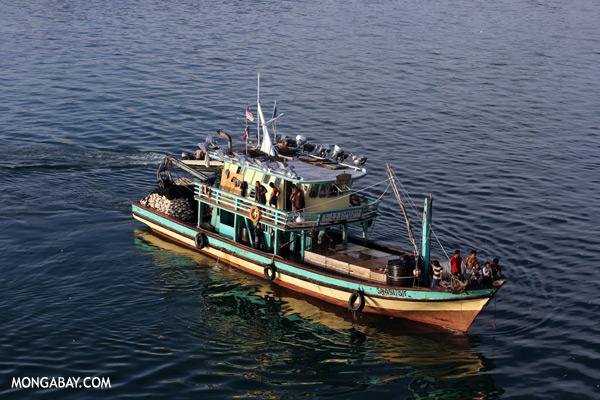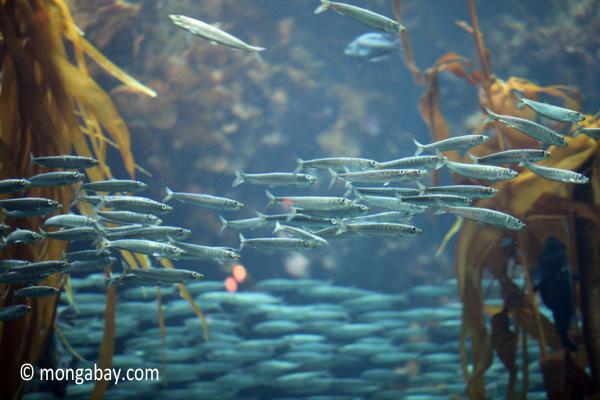Consumers in the developed world want sustainably sourced seafood and increasingly retailers like Walmart in the U.S. and Sainsbury’s in the U.K. are promising it to them. But there just isn’t enough certified-sustainable seafood to meet demand.
Enter fishery improvement projects, or FIPs. These are partnerships between fishers and companies throughout the seafood supply chain that are intended to help unsustainable fisheries improve their practices by dangling the carrot of access to lucrative markets. Many seafood retailers happily sell FIPs-caught fish as a way to make good on their sustainability promises. The trouble is, many FIPs, particularly in the developing world, are failing to deliver improvements, according to a recent policy paper in the journal Science.
Developing-world fisheries have a hard time meeting sustainability standards. Criteria of the London-based Marine Stewardship Council (MSC), one of the main certifiers of sustainable seafood, broadly include maintaining stocks at adequate levels, minimizing environmental damage, and managing the fishery effectively.
MSC certified roughly 220 fisheries as of 2013, yet only 7 percent of these are located in the developing world, according to the paper by Gabriel S. Sampson, a doctoral candidate in agricultural and resource economics at the University of California, Davis, and several colleagues.
More than 130 FIPs exist around the world and they are proliferating quickly. FIPS are run by NGOs or the private sector, and are not officially part of any certification scheme, although certification is often the ostensible goal. The authors analyzed the progress of 111 FIPs through a five-stage process toward sustainability, the model used by the Sustainable Fisheries Partnership, a Honolulu-based NGO that has initiated many FIPs.
They found that nearly two-thirds of FIPS in developing countries are accessing global markets, even though they have not yet improved their fishing practices. Developing-country FIPs were lingering longer than their developed-country counterparts in the early planning stages of the process: 50 months vs. 41 months. And a subset of them appeared to be stuck in planning mode indefinitely. Only one-fourth of all FIPS had actually progressed to the point of beginning to improve their practices.
This poses a real problem for the credibility of sustainable seafood claims, the authors argue. “FIPs are creating de facto sustainability claims recognized by retailers and others in the supply chain, effectively competing with MSC and other third-party certifications,” they write. “This competition could lead to a race to the bottom in standards for sustainability.”
The solution they propose is to keep the door to the market closed until later in the process, after management systems are in place, or to shut the door again on fisheries that fail to progress in a timely manner. “This could also provide assurances to the consumer that ’sustainable' seafood is accurately described in the marketplace,” they write.
Citations:
- Sampson, G.S., Sanchirico, J.N., Roheim, C.A., Bush, S.R., Taylor, J.E., Allison, E.H., Anderson, J.L., Ban, N.C., Fujita, R., Jupiter, S., & Wilson, J.R. Secure sustainable seafood from developing countries: Require improvements as conditions for market access. Science. 348(6234): 504-506 (2015).
This article was written by Rebecca Kessler, a contributing writer for news.mongabay.com. This article was republished with permission, original article here.

